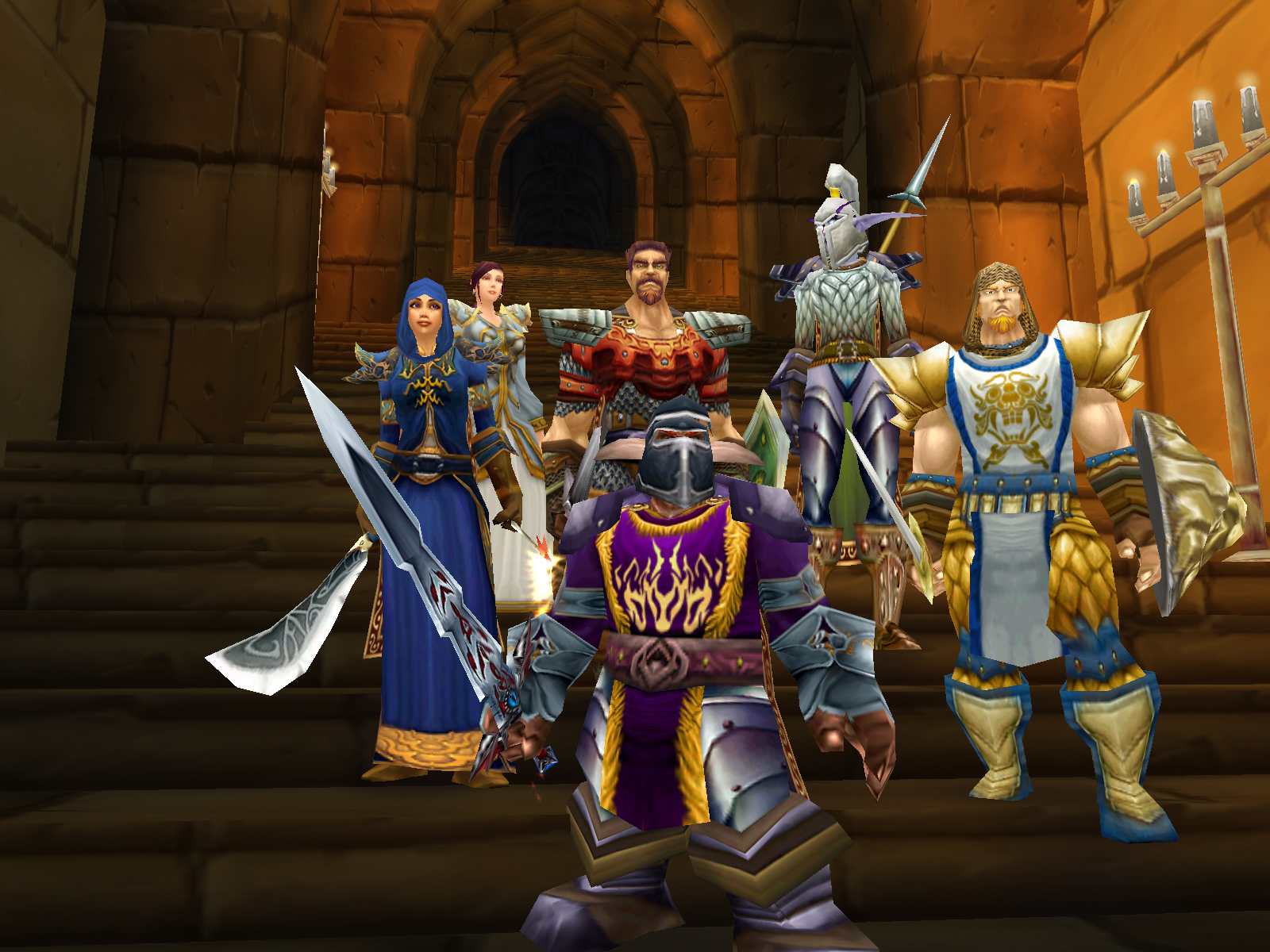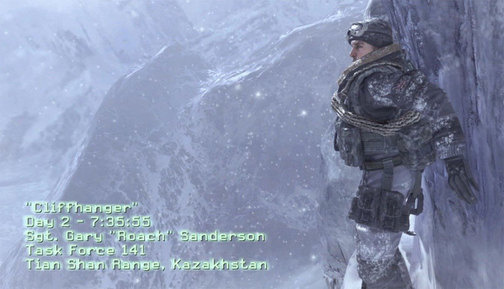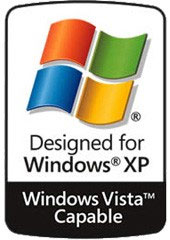When I heard the name “Xoom,” I immediately thought of the international payments company with the same moniker and wondered if there was a connection. There wasn’t. Except that the payments people are now suing the tablet people.
Tag Archives | Lawsuits
World of Warcraft Cheating Isn’t Illegal, Still Banned
 The old question of whether you own or merely license software got another answer in a U.S. appeals court, which ruled partly in favor of World of Warcraft maker Blizzard.
The old question of whether you own or merely license software got another answer in a U.S. appeals court, which ruled partly in favor of World of Warcraft maker Blizzard.
The court was ruling on a two year-old lawsuit by Blizzard and Vivendi Games (now Activision-Blizzard) against MDY, whose Glider software automatically plays the game on behalf of users. The point is to get through the grind of leveling up in World of Warcraft without paying attention or exerting effort.
Blizzard argued that Glider violated the game’s terms of service and should be banned, and the U.S. Court of Appeals for the Ninth Circuit agreed, upholding the decision of a lower court. But Blizzard also wanted MDY — and by extension, its users — to be liable for copyright infringement. The Ninth Circuit wouldn’t go that far, and overturned the lower court’s decision. While the Ninth Circuit agreed that MDY violated the Digital Millennium Copyright Act by circumventing Blizzard’s anti-bot detection program, “WoW players do not commit copyright infringement by using Glider in violation of the [terms of use].”
What does this mean for WoW’s unscrupulous players? Exactly what it should: If you cheat at World of Warcraft, you run no risk of getting sued, however unlikely that was in the first place. But you are playing in Blizzard’s house, so if you get caught breaking the rules, you might get kicked out. As with any online gaming service, membership is a privilege, not a right.
Of course, with the court upholding an injunction against MDY, World of Warcraft cheaters will have to find another way to coast through the game.
12 comments
Modern Warfare to Become a Litigious Mess
 Some really strange things happened this week between Call of Duty publisher Activision and Infinity Ward, the studio that created the franchise and developed last year’s blockbuster Call of Duty: Modern Warfare 2.
Some really strange things happened this week between Call of Duty publisher Activision and Infinity Ward, the studio that created the franchise and developed last year’s blockbuster Call of Duty: Modern Warfare 2.
Long story short: The studio’s two heads, Jason West and Vince Zampella were abruptly fired for “breaches of contract and insubordination,” according to an SEC filing. Shortly thereafter, Activision announced that one of its internal studios, Sledgehammer Games, would be making a Call of Duty game for 2011. Infinity Ward developed the last two Call of Duty games released in odd-numbered years.
It makes for high drama, but it’s mostly inside baseball. Things just got interesting, however, with the announcement of a lawsuit from West and Zampella against Activision. In addition to seeking compensation for royalties Activision allegedly owes, the former Infinity Ward heads are looking for control over “Modern Warfare-branded games,” reports G4’s Patrick Klepek.
If West and Zampella prevail, think of the implications. Activision’s already releasing Call of Duty games annually, alternating between studios to keep things fresh. Modern Warfare, as its own franchise, could theoretically become its own franchise and sit next to Call of Duty on store shelves. You could get three games with the same DNA in a two-year span (and somehow I don’t think gamers will get tired of this).
The funny thing is, last year I wildly predicted that a full Modern Warfare spinoff was conceivable. Of course I had no idea it might happen through messy internal politics and lawsuits.
2 comments
Note to Rude Gamers: You Don’t Have the Right
 I got a chuckle today reading about the failed lawsuit of Playstation 3 owner Erik Estavillo, who tried to sue Sony after getting banned from the Playstation Network for bad behavior.
I got a chuckle today reading about the failed lawsuit of Playstation 3 owner Erik Estavillo, who tried to sue Sony after getting banned from the Playstation Network for bad behavior.
If you’ve ever played a competitive online game, you know the type: Loud-mouthed, cussing, insulting, maybe even racist, sexist or homophobic. It’s not clear which of those offenses Estavillo committed while playing Resistance: Fall of Man, but it was apparently bad enough that Sony kicked him off the entire Playstation Network.
A few months ago, Estavillo sued Sony for $55,000 and asked that the company be enjoined from banning other players, on grounds that his right to free speech in a public forum was violated. He added that his agoraphobia (social anxiety) precludes him from socializing in public, so PSN was his only outlet. Estavillo further claimed that Sony effectively stole his pre-paid Playstation Store points.
Too bad. Game Politics reports that a judge has dismissed the case, ruling that a First Amendment claim isn’t plausible. After all, it’s Sony’s private network, and when you sign on, you agree to Sony’s rules. If there’s any question that PSN is like a public place, the tech law blog of Eric Goldman further notes that Sony’s network wasn’t considered a “company town,” because it doesn’t take on any functions of a municipality, virtual or otherwise. PSN is an entertainment venue, not a public service.
The bottom line is, you don’t have First Amendment rights in online gaming. You do have a responsibility to be courteous to those around you. For all the times that people ignore those principles in Resistance, Halo or Gears of War, I’ve got to pump my fist for the minor victories.
6 comments
So What’s the State of the Patent System?
 I’m not going to ask you to render a verdict in yesterday’s court case that involved a Texas judge telling Microsoft it’s not allowed to sell Word anymore because it violates a Canadian company’s XML-creation patents. Judgments on particular cases are most pertinent when they’re made by people who have read all the evidence in question and have an in-depth knowledge of patent law…which most of us haven’t done and don’t possess. We civilians are, however, allowed to have gut reactions to the the condition of the U.S. patent system, and whether pricey, long-running court battles (like the Word case and this one and this one) help or hurt the cause of innovation in this country. So that’s the topic of today’s T-Poll.
I’m not going to ask you to render a verdict in yesterday’s court case that involved a Texas judge telling Microsoft it’s not allowed to sell Word anymore because it violates a Canadian company’s XML-creation patents. Judgments on particular cases are most pertinent when they’re made by people who have read all the evidence in question and have an in-depth knowledge of patent law…which most of us haven’t done and don’t possess. We civilians are, however, allowed to have gut reactions to the the condition of the U.S. patent system, and whether pricey, long-running court battles (like the Word case and this one and this one) help or hurt the cause of innovation in this country. So that’s the topic of today’s T-Poll.
5 comments
Settled: Activision’s War on Brütal Legend
 Cooler heads prevailed today, as mega game publisher Activision and settled a lawsuit that could’ve halted one of this year’s most promising games, the AP reports.
Cooler heads prevailed today, as mega game publisher Activision and settled a lawsuit that could’ve halted one of this year’s most promising games, the AP reports.
In June, Activision sued game developer Double Fine to stop the release of Brütal Legend, a metal-inspired action-adventure game starring the voice of Jack Black and directed by Tim Schafer, designer of The Secret of Monkey Island and Grim Fandango. Activision filed the lawsuit in Los Angeles on June 4, just as Brütal Legend was receiving accolades down the road at E3.
At issue was the $15 million Activision claims it invested in the game before merging with World of Warcraft maker Blizzard Entertainment and subsequently dropping the project. After the merger, Electronic Arts took over as publisher, but Activision said that it still held rights to the game and that Double Fine didn’t deliver it on time.
Before the lawsuit, EA expressed doubt that there’d be a court battle. “That would be like a husband abandoning his family and then suing after his wife meets a better looking guy,” the company told Variety in a statement.
Activision did sue, but when it came time for the publisher to argue today why the game shouldn’t be released, Activision instead told the court that the lawsuit was settled. Attorneys didn’t return the AP’s calls, so I don’t think we’ll ever learn the settlement details.
This is great news. I’m no metal fan, but I still appreciated Brütal Legend’s wry humor during the lengthy playable demo at E3. Combine that with its 3D/cartoon art style, puzzle-solving, driving and button-mashing, and Brütal Legend at least looks like a break from the usual generic shooters and beat-em-ups. I’m looking forward to playing it in October.
No comments
Trouble for One of E3’s Best Games
 If the banner covering the top of the Los Angeles Convention Center is any indication, Brütal Legend is a big deal. For Activision, which once held the game’s publishing rights, its the subject of a lawsuit.
If the banner covering the top of the Los Angeles Convention Center is any indication, Brütal Legend is a big deal. For Activision, which once held the game’s publishing rights, its the subject of a lawsuit.
The AP reports that Activision is suing Brütal Legend developer Double Fine to “stop the release” of the game. The publisher claims it has sunk roughly $15 million into the project and still has a valid publishing contract.
The issue is, of course, knottier than that. Brütal Legend was part of the line-up Activision dropped during the Activision-Blizzard merger, after it acquired Sierra in 2008. Electronic Arts reportedly took the reins as publisher, and here at E3 the game is a top critical pick.
Starring the vocal talents of Jack Black, Brütal Legend follows a roadie who winds up in a mythical Age of Rock. Tim Schafer, who created The Secret of Monkey Island and Grim Fandango, among other critical darlings, is the game’s creative director.
The game showed a lot of promise in my hands-on time. It’s more action-oriented than Schafer’s classic adventure games, but I’m told that a lot of genres come into play, including the puzzle-solving that put Schafer’s earlier work on the map.
So I’m hoping Activision doesn’t prevail in this lawsuit. When it was rumored in February that Activision would cause trouble, EA offered some fighting words: “We doubt that Activision would try to sue,” the company said. “That would be like a husband abandoning his family and then suing after his wife meets a better looking guy.”
That’s what it looks like from here, with Brütal Legend earning a nomination from IGN for Best of Show. Expect EA to defend its hot property.
2 comments
Mac Clonemaker Psystar Files for Bankruptcy
The second-largest manufacturer of OS X computers on the planet can’t pay its bills, which will make it tough to defend itself against Apple’s lawsuit:
Unauthorized Mac clone maker Psystar has filed for Chapter 11 bankruptcy protection in Florida, temporarily slowing down Apple’s legal case against it. The filing may be an indication that the company’s financial backers have pulled out, signaling they see Apple as the clear winner in court.
The bankruptcy documents were filed with the Federal Courts in Florida on Thursday, and Apple’s legal team was most likely made aware of the situation over the Memorial Day weekend.
The Mac Observer says that Psystar will have to disclose who its financial backers are at a June 5th hearing. That should either be really interesting–or put an end to the theory that the tiny company has some corporate Svengali calling the shots.
No comments
Denial of Class Action for “Vista Capable” Suit Could Be a Bad Thing–For Microsoft
 I’ll preface this with the fact that I am not a legal expert by any means, however at face value the denial of class action status in the ongoing lawsuit over Microsoft’s “Vista Capable” program may actually prove to be more problematic for Redmond in the long run.
I’ll preface this with the fact that I am not a legal expert by any means, however at face value the denial of class action status in the ongoing lawsuit over Microsoft’s “Vista Capable” program may actually prove to be more problematic for Redmond in the long run.
The gist of the suit, led by consumer Dianne Kelley, accused Microsoft of labeling computers that could only run the most basic version of Vista — which does not include any of the user interface enhancements — as capable of running the OS fully, thus defrauding consumers.
Seattle US District Court Judge Marsha Pechman has ruled that the individual cases could proceed, however she would not grant class action status because universal harm to all consumers who bought “Vista Capable”-marked PCs could not be proven.
Microsoft had attempted to have the case dismissed, however Pechman denied that motion.
So, how is this problematic to Microsoft? If Kelley and company end up prevailing, it could set a precedent for other jilted consumers to sue, entangling Redmond further in the legal morass.
In class action suits, typically the only beneficiaries of significant settlements are the chief plaintiffs. The members of the class-action, who technically could be considered plaintiffs in their own right, usually get a significantly smaller settlement in exchange for the stripping of their rights to sue.
Here, Microsoft is getting no protection at all. Thus, it keeps the door open for additional folks to press their luck in the courts: here’s where a negative judgment may have been the best solution.
So while some may be saying the thunder may have been taken out of this case, I think it may have made Microsoft’s problems regarding this not-too-well-thought-out program potentially worse.
One comment
Apple Nano Settlement Reached, Lawyers Make a Windfall
 Shortly after the first-generation iPod Nano launched, it became apparent that they scratched far too easily. That inspired one disgruntled customer to blog about his complaints, leading some enterprising lawyers to contacted him. A lawsuit was born, and four years on, a $22 million settlement has been reached.
Shortly after the first-generation iPod Nano launched, it became apparent that they scratched far too easily. That inspired one disgruntled customer to blog about his complaints, leading some enterprising lawyers to contacted him. A lawsuit was born, and four years on, a $22 million settlement has been reached.
Apple tacitly acknowledged the problem when it began to ship Nanos with protective slipcovers. Customers that bought their Nanos before protective covers were included with the product are entitled to recover $25 in restitution; customers that received covers will be eligible for $15, according to CNBC. The lawyers that sued Apple stand to gain $4 million–a very lucrative payout.
The suit alleged that the Nanos’ screens were not coated to protect against scratches. Jason Tomczak, the gentleman whose blogging inspired the lawsuit, said that his nano had become unreadable after a relatively short period of time.
I highly doubt that many of those first generation Nano owners still use their devices–including Mr. Tomczak (his is probably sequestered in an evidence bag). I’ll postulate that Apple understood its customers upgrade frequently, and decided that scratch resistance was not worth the expense.
Apple should not have shipped the Nano with such a defect. There is no way that Apple could not know that the devices would be passing in and out of people’s pockets, colliding with coins and keys. It would have been simpler and more cost effective to issue $25 checks four years ago, when its customers were unhappy in the first place.
